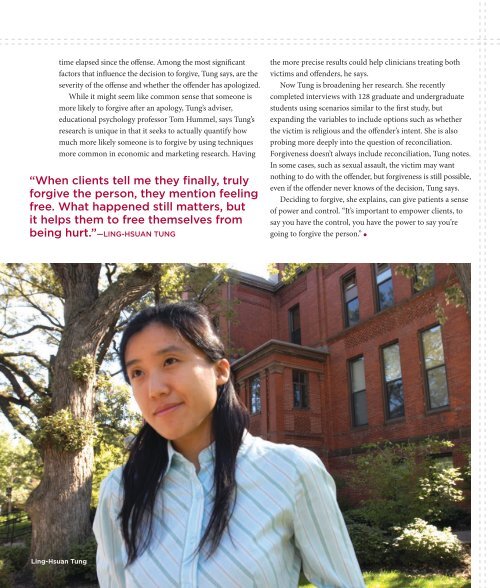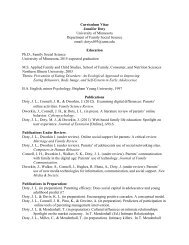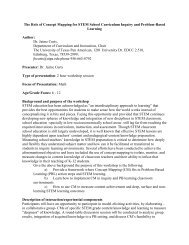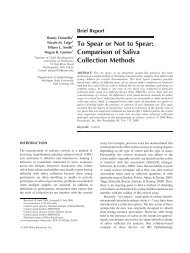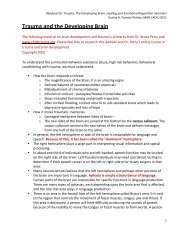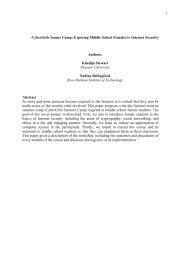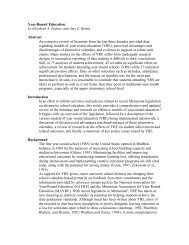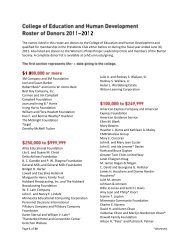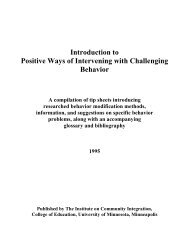connect! - College of Education & Human Development - University ...
connect! - College of Education & Human Development - University ...
connect! - College of Education & Human Development - University ...
Create successful ePaper yourself
Turn your PDF publications into a flip-book with our unique Google optimized e-Paper software.
time elapsed since the <strong>of</strong>fense. Among the most significant<br />
factors that influence the decision to forgive, Tung says, are the<br />
severity <strong>of</strong> the <strong>of</strong>fense and whether the <strong>of</strong>fender has apologized.<br />
While it might seem like common sense that someone is<br />
more likely to forgive after an apology, Tung’s adviser,<br />
educational psychology pr<strong>of</strong>essor Tom Hummel, says Tung’s<br />
research is unique in that it seeks to actually quantify how<br />
much more likely someone is to forgive by using techniques<br />
more common in economic and marketing research. Having<br />
“When clients tell me they finally, truly<br />
forgive the person, they mention feeling<br />
free. What happened still matters, but<br />
it helps them to free themselves from<br />
being hurt.”—LING-HSUAN TUNG<br />
Ling-Hsuan Tung<br />
30 CONNECT! FALL 2007<br />
the more precise results could help clinicians treating both<br />
victims and <strong>of</strong>fenders, he says.<br />
Now Tung is broadening her research. She recently<br />
completed interviews with 128 graduate and undergraduate<br />
students using scenarios similar to the first study, but<br />
expanding the variables to include options such as whether<br />
the victim is religious and the <strong>of</strong>fender’s intent. She is also<br />
probing more deeply into the question <strong>of</strong> reconciliation.<br />
Forgiveness doesn’t always include reconciliation, Tung notes.<br />
In some cases, such as sexual assault, the victim may want<br />
nothing to do with the <strong>of</strong>fender, but forgiveness is still possible,<br />
even if the <strong>of</strong>fender never knows <strong>of</strong> the decision, Tung says.<br />
Deciding to forgive, she explains, can give patients a sense<br />
<strong>of</strong> power and control. “It’s important to empower clients, to<br />
say you have the control, you have the power to say you’re<br />
going to forgive the person.” l


